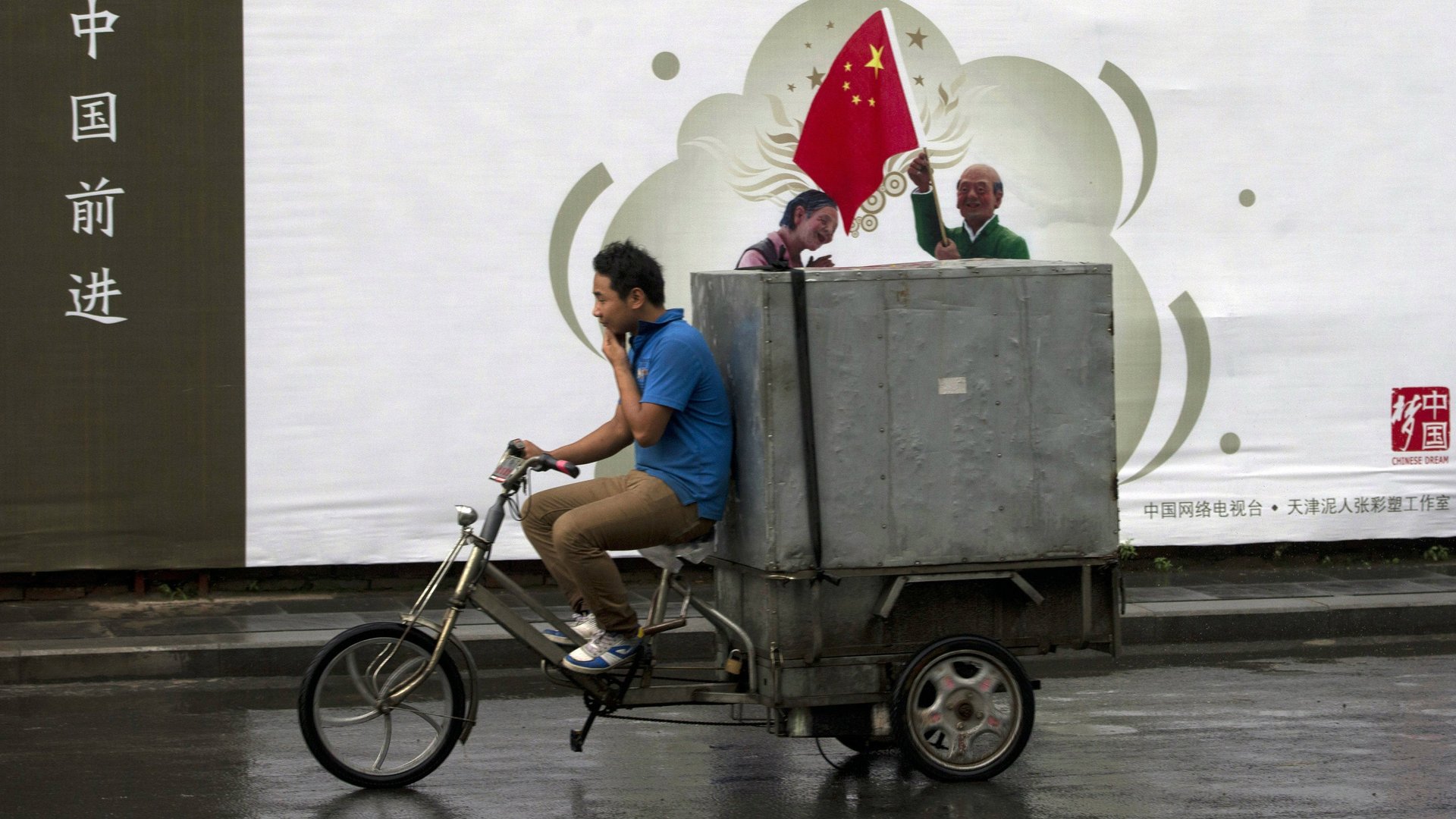Alibaba’s next plan is to get more of China’s businesses delivering on-demand
Alibaba and its complicated affiliate, Ant Financial, are investing 3 billion yuan ($483 million) each into Koubei, a joint venture that focuses on what Alibaba calls “local services.” What that means is that the Chinese e-commerce giant is getting into the on-demand business—which covers everything from pizza delivery to Uber to manicures—in a big way.


Alibaba and its complicated affiliate, Ant Financial, are investing 3 billion yuan ($483 million) each into Koubei, a joint venture that focuses on what Alibaba calls “local services.” What that means is that the Chinese e-commerce giant is getting into the on-demand business—which covers everything from pizza delivery to Uber to manicures—in a big way.
Koubei’s initial focus will be food. Restaurants already using Taodiandian, Alibaba’s previous meal delivery service, will be moved over to Koubei, which will eventually have an upgraded app and promotional tools. But Alibaba wants to broaden the range of Koubei’s services—for example, it will partner with hospitals to open up appointment schedules, and or work with vending machine makers to power payments with Alipay, Ant’s popular mobile wallet with more than 190 million users.
Koubei has been around for 10 years in China, though recently it has been more or less dormant. Alibaba’s spokeswoman told Quartz that the new joint venture marks a “revitalization” of the brand.
China’s internet giants have been investing heavily in on-demand. Earlier this year, Alibaba’s main competitor in e-commerce, JD, established a standalone subsidiary that resembles Alibaba’s revamping of Koubei and invested in several startups that provide on-demand services for consumers, like instant meal delivery and produce delivery. Chinese social giant Tencent, meanwhile has a 20% stake in Dianping, a Yelp-esque portal that also lets users order out.
These aggressive investments can be explained by China’s retail landscape, which is far more fragmented than the US’s. As of 2012, the top 100 brick-and-mortar stores in the US accounted for 57% of total retail sales. In the China, just 9%.
That leaves internet companies eager to be the middleman that connects offline stores with online consumers—and earn a cut of the take.